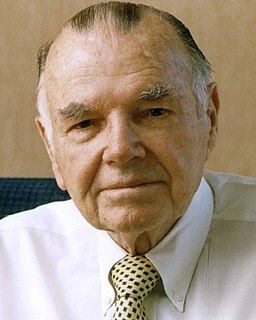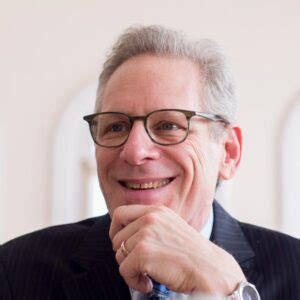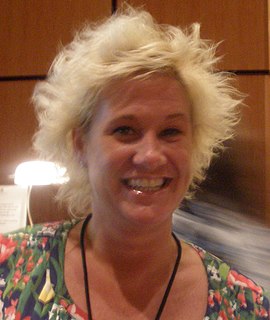A Quote by William S. Burroughs
No body of knowledge needs an organizational policy. Organizational policy can only impede the advancement of knowledge. There is a basic incompatibility between any organization and freedom of thought.
Related Quotes
What being among the 'right people' entails is the possession of human capital, rather than organizational capital: an individual reputation, portable skills, and network connections. Career responsibility is squarely in the hands of individuals, a function of their knowledge and networks. Transferable knowledge is more important to a career than firm-specific knowledge.
The production of knowledge in schools today is instrumental, wedded to objective outcomes, privatized, and is largely geared to produce consuming subjects. The organizational structures that make such knowledge possible enact serious costs on any viable notion of critical education and critical pedagogy. Teachers are deskilled, largely reduced to teaching for the test, business culture organizes the governance structures of schooling, knowledge is viewed as a commodity, and students are treated reductively as both consumers and workers.
The team you belong to must come ahead of the team you lead: this is putting team results (e.g., organizational needs) ahead of individual agendas (e.g., the team or division you lead, your ego, your need for recognition, your career development, etc.) Confidentiality is respected downward more than it is respected upward. Organizational alignment is a direct result of this hierarchy (if it were the other way around, organizational alignment would be very difficult to achieve).
I think it's possible for me to approach the whole problem with a broader scope.When you look at something through an, an organizational eye, whether it's a, a religious organization, political organization, or a civic organization, if you look at it only through the eye of that organization, you see what the organization wants you to see. But you lose your ability to be objective.
There are many structural changes, both in organizational practice and social policy, that must also change to enable men and women to have the freedom and support to pursue the lives they want to lead. Fortunately, many more people are today engaged in these efforts than when started working on this issue decades ago.
When speaking of a "body of knowledge" or of "the results of research," e.g., we tacitly assign the same cognitive status to inherited knowledge and to independently acquired knowledge. To counteract this tendency a special effort is required to transform inherited knowledge into genuine knowledge by revitalizing its original discovery, and to discriminate between the genuine and the spurious elements of what claims to be inherited knowledge.
There is a big divergence between views on a variety of policy issues from fiscal stimulus to financial regulation. It's my hope and my ambition for the economics profession that as we advance our knowledge, that those discussions will narrow in their focus, and that it will help to have more prudent policy-making down the road.
The source of innovation is freedom. All we have - new knowledge, invention - comes from freedom. Discoveries and new knowledge come from freedom. When somebody is responsible only to himself, [has] only himself to satisfy, then you'll have invention, new thought, now product, new design, new ideas.





































